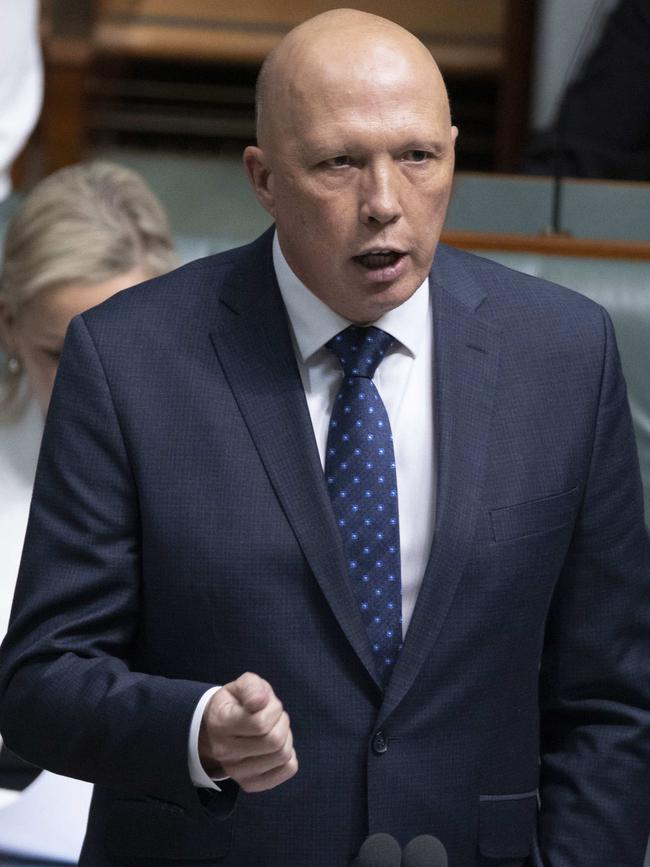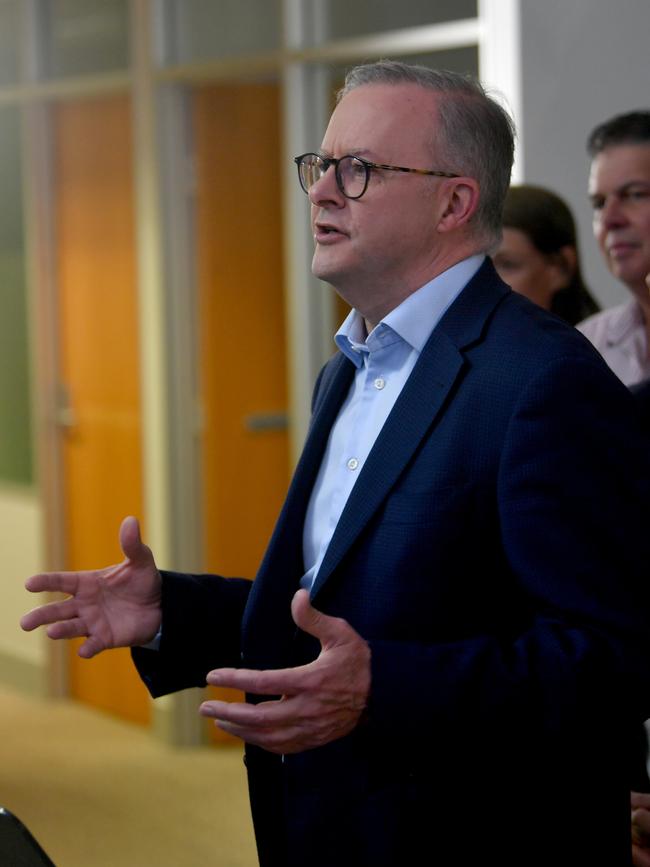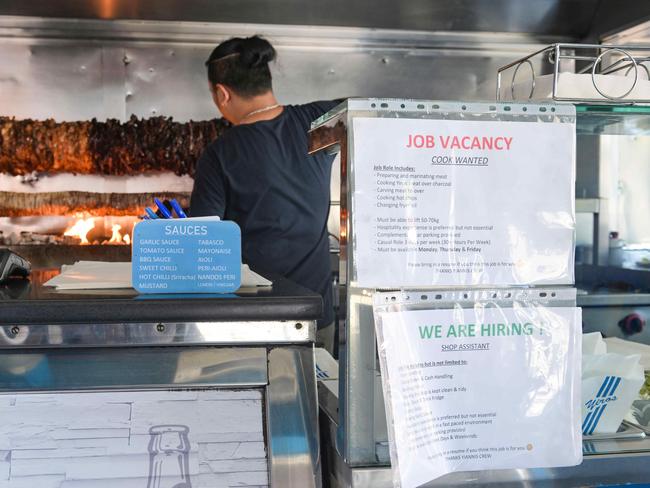Clare Armstrong: As 2023 begins, households grapple with ever-increasing costs
As the natural tan fades and air conditioning energy bills roll in now that La Niña has finally decided to lay off, a lot of households will be nervous about money, writes Clare Armstrong.
Opinion
Don't miss out on the headlines from Opinion. Followed categories will be added to My News.
As the cost-of-living crunch bites, the Federal government’s political fortunes are inextricably linked to its ability to limit the worst of the economic crises looming this year.
After several years of pandemic-impacted holidays, many Australians finally got a chance to travel, relax and even splurge this summer but, on this side of the New Year‘s Eve fireworks, the economic realities of 2023 are impossible to ignore.
Inflation remains high and is at best expected to start to moderate by the middle of this year, while the ongoing war in Ukraine is wreaking havoc on energy prices and natural disasters further drive-up grocery bills.
Supply chain issues and labour shortages are making basic services more expensive, rent is going up and mortgage stress is on the rise.
In the coming weeks, as the natural tan fades and energy bills roll in for the air conditioning used now La Niña has finally decided to lay off, a lot of households would be nervous about the state of their finances.

Even with concerted belt tightening – surely a budget-friendly DIY iced coffee TikTok trend is imminent? – most homeowners won’t be able to completely offset the impact of rising interest rates with other savings.
Politically, cost-of-living concerns will be fertile ground for the Coalition as it seeks to exploit any weaknesses (real or perceived) in the government.
Opposition leader Peter Dutton has already signalled Labor’s industrial relations changes, the energy market intervention announced last year, and now the proposed changes to the safeguard mechanism to curb emissions are policy points of difference where he feels the economics are on his side.
Any higher energy costs, labour or other workplace disruptions that impact productivity will be seized upon this year as direct results of failed government intervention.
With the 2022 Federal election now a long way in the rear view mirror, responding to the economic challenges Australia is facing – even those driven by overseas factors – is now viewed by the public as firmly within the Albanese Government’s responsibility.
Tolerance for any blame games will be minimal as households grapple with ever-increasing costs.


Just as many Australians are returning to work, the wheels of government are also beginning to fire up, with Cabinet meetings due to resume this week and it won’t be long until the countdown to the May budget begins in earnest.
Treasurer Jim Chalmers has acknowledged 2023 presents a host of economic challenges but many of the government’s purported solutions are still some months away from coming into effect.
The much-needed energy bill relief will not flow through to consumers for several months, while cheaper childcare does not kick in until July.
The price of medicines has been reduced as of this month but other expenses are on the rise.
Fruit and vegetable prices increased 16.2 per cent over the year to the September quarter, while ongoing flooding is expected to result in further pain at the grocery checkout in the coming months.
Air travel is a long way off pre-pandemic prices (and let’s not even get started on reliability) and demand is far outstripping supply in the second-hand car market.
Labour shortages are also causing a myriad of problems across the economy.

A lack of skilled workers in critical areas of health, construction and service delivery has become a hand break on productivity – identified by Chalmers as critical for Australia to grow the economy and avoid a seemingly inevitable global recession.
Even with a construction boom – some 99,000 jobs were created in the sector in the six months to November last year – workforce shortages are acute.
Material costs have also skyrocketed due to supply chain issues, making every much-needed new home built that much more out of reach for the average Australian income.
Keeping a lid on inflation to protect Australians from further price pain will also limit the government’s ability to deliver direct household assistance.
The economic challenges will be further compounded by the pressure to reign in spending and reduce government debt.
With “good economic manager” credentials an important criteria on voters’ bingo cards, Labor need to demonstrate concerted efforts at budget repair before the next Federal election.
And while Chalmers is trying to balance Treasury’s books, cash-strapped Australian mortgage holders will be grappling with their own math as low fixed interest rate deals expire.
With Christmas now a distant blur, January is progressing at an obnoxiously fast pace and with the new year are all the economic realities everyone has been bracing for.
Bank balances must be analysed, spending re-evaluated and difficult financial decisions made.
It was a well-earned summer break but, sadly, it’s time to get back to work.





